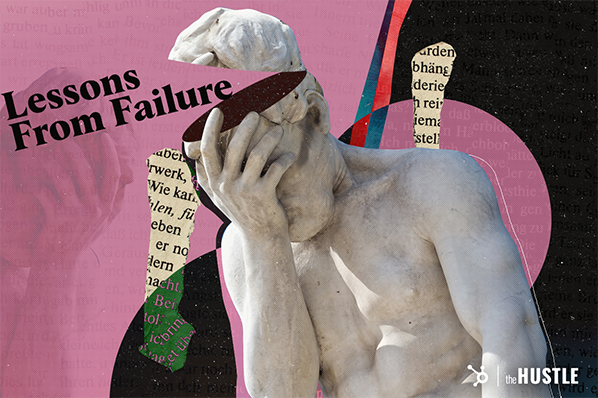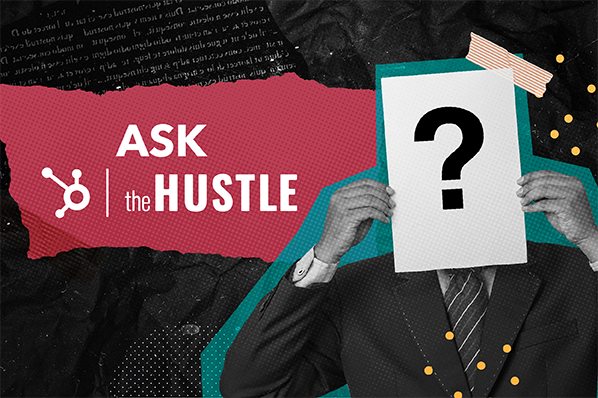How a tech entrepreneur keeps perspective, copes with personal challenges, and makes decisions in the face of unexpected changes.

Jess Lynch, a customer service software entrepreneur, has seen firsthand the impact of support and encouragement from others can have during tough times.
"My passion for helping people move their lives forward comes from my family's experience with diabetes when my brother was diagnosed," Lynch says. "Doctors at the time didn't understand the power of nutrition, so my mom quit her job to research it and wrote a book about our family. It showed me the power of breaking change down into small, achievable steps."
Inspired by the way her family rallied around her brother, Lynch founded Wishroute, a text-based coaching service that helps D2C subscription companies support their customers. With most subscription-based companies losing 70% of their customer engagement in the first 3 days of a customer's journey, Wishroute's human-based text interactions help companies keep everyone engaged and motivated. For example, a mindfulness business can remind their clients to take a meditation break in the afternoon, while a fitness startup can nudge a customer to squeeze in a quick workout between meetings.
"As a founder with a mission of encouraging others, Lynch has to keep her fear and stress at bay to show up each day for her team. I've learned the most important thing is resilience," she says. Every day something is going to go well and something is going to go really badly. Resilience is what you need to focus on, because waiting to feel good at a future time doesn't work, you have to find joy in the journey.
Lynch says finding that joy, though, can be difficult, particularly for founders facing immense amounts of stress from investors, employees, and the public.
"It's about a full cup: If you don't invest in your self-care practices, then you burn out on that resilience," she says. I've learned to course-correct by implementing my self care practices like meditation and journaling as soon as I identify that I'm coming close to that burnout feeling so I can rebound.
Below Lynch talks to The Hustle about staying positive, personal affirmations, and pushing through fear to make business decisions.
The Hustle: What do you find to be the most challenging aspect of entrepreneurship?
JL: There have been a lot of moments that have just been awful when you get too wrapped up in it and can't see the forest for the trees. The times when you get bad news and your brain starts looking ahead and doesn't see the path to success anymore.
One time, I was on vacation when I saw an email from a customer that they wanted to postpone the implementation date that we had been planning on for months. Normally one customer changing that isn't a huge deal, but in this case, it was one we were really excited about and has a very well-known brand. My stomach dropped and I felt really upset.
We are always looking for the worst-case scenario, and it's hard to make good decisions when you feel panicked and like everything is failing. But then the next day happens, and the next week happens, and all of a sudden reality has changed and you can see the path again.
TH: What do you do to cope in those moments?
JL: I can't say I handled it perfectly, but there were some things I did that helped me continue to enjoy my vacation as well as turn the situation around. One of the most important affirmations or perspectives I try to remind myself about when news like this drops is: Notice this without judgment; it's a data point that I will strategize about, but giving myself space from it and staying objective is more productive then letting it impact my feelings of confidence or safety.
I visually imagined the stress pushing away on all sides of me and creating a defensive bubble around myself filled with clean energy and light and peace. I reflected on what can I get moving now versus what needs to wait until I'm back from vacation. I called in help. The space reminded me I don't have to navigate this alone and shouldn't. I could be productive while I enjoy my vacation by letting someone else work on this in the meantime. I reached out to an adviser that was familiar with the customer and asked for his advice. I then stepped away and tried to stay present with my husband while we enjoyed a new city.
Each day I found it important to journal on any feelings of fear I find writing worries and fears really helpful; it gets them out of my head so I don't ruminate on them. I also found it important to spend at least 10 minutes meditating to help maintain peace and perspective.
When I returned, I worked with my adviser to navigate conversations with my points of contact at the company, and in the end got everyone back to the original timeline. It was kind of amazing, but a reminder that our brains think they know the future and can spin in all the ways things won't work out, but that's not always how things go. We can't trust our brains in fear spirals, and the best thing we can do for our business and our own mental health is to put practices into place that help us cultivate peace and perspective so we stay grounded and can make decisions from a position of strength.
TH: How do you show up even when you're feeling anxious?
JL: It's hard as a founder. If you're sick or you have a family member die, you still have to show up for your team and you never want it to carry through to them. Most of the time, I just try to remind myself that the best thing for the team and for myself is for me to leave whatever is bothering me alone and to go into a meeting fresh. If I can just not think about it for the next hour, I can always come back to it.
But other times, if something is really affecting me and I don't think I can put it aside, it's really important to be vulnerable with the team. When I lost my uncle last year, I had to show up to a team stand-up because we had a lot of mission-critical things going on and I cried in the meeting. And that's OK, everyone else has cried at some point. Your team gets it, they've lost people in their lives, and I think it builds trust and loyalty when you're authentic.
TH: Do you find there's space to talk about mental health in the startup community?
JL: I think there's a lot of room for improvement and ways to try to foster this. Founders don't talk enough about mental tips and tricks that can help you get out of a fear-based disposition. You can't make good decisions out of fear and no investor wants you making decisions out of fear; they want you making a decision grounded with perspective and all your resources around you. I was shocked to hear from another founder that she was 3 years into her company and she just heard someone say for the first time that it would be OK if her business failed.
TH: What advice would you give another entrepreneur on caring for their mental health?
JL: Your well-being is the best thing for your business to invest in. It's practical there's an ROI to it. It literally pays off to take time for yourself. Entrepreneurs need to remember that even if your business fails, it doesn't mean the end of your life. People are still going to support you, you can still build another business. You still have food and housing. I think there are different levels of being all in, and you need to find a way to be all in while also being mentally healthy.
.jpg?width=48&height=48&name=IMG_2563%20(1).jpg)

-1.png)

.png)

.png)

.png)

